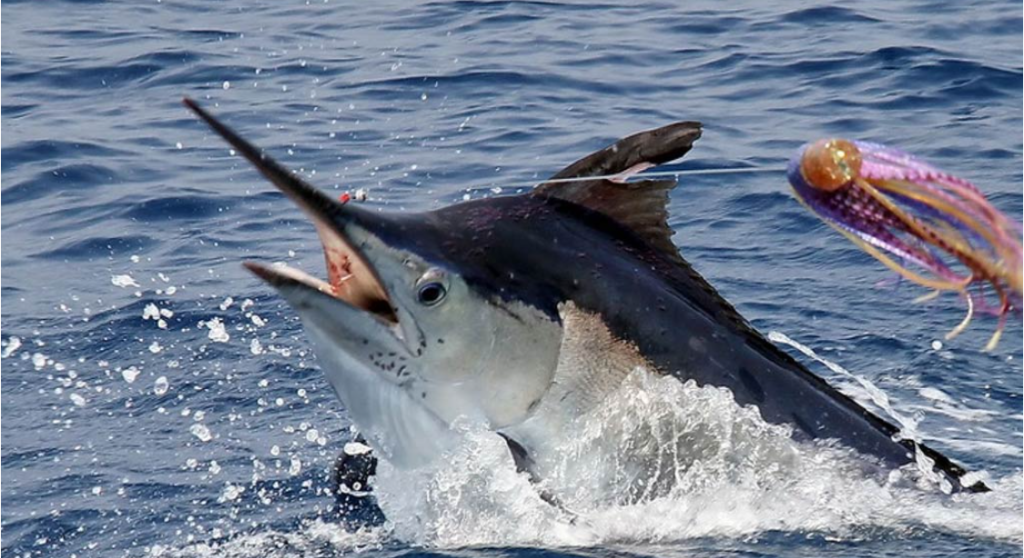Saltwater fish are the exquisite beings of the oceans. From small, colourful species found in the vicinity of coral reefs to the large predators drifting across open seas, fish are essential species in a marine ecosystem as far as human life is concerned. Saltwater is counted among the highly admired specimens because of the two aspects of its existence: being a beautiful technician and being a technician. Being regarded as prized food and listed in recreational activities like fishing and aquariums, they have brought much illumination to humankind. This article is going to take you through different types, apart from the benefits and interesting facts concerning saltwater, regarding its role in our lives.
What Are Saltwater Fish?
Saltwater occur naturally in oceans and seas, having water that is more saline than freshwater. They are specialised species with adaptations biologically for the survival of such a salty environment, requiring special gills and kidneys for their adjustments. Saltwater makes up most species, ranging from the largest species of tuna and sharks to the smallest of tropical reef fishes.
There are two main types of saltwater fish:
Pelagic fish– this includes tuna, mackerel, and swordfish, all of which are open-water fish.
Demersal fish– near the ocean floor, like cod, grouper, and snapper.
Types of Saltwater Fish
These fish are some of the most diverse in the world. Some of the more common and popular species include:
- Tuna is highly valued for its meat in sushi and canned products.
- Mackerel is synonymous with oily flesh and a rich omega-3 content.
- Cod, liked in many varieties of foodstuffs, is usually served as fish and chips.
- Snapper, with sweet and firm flesh, is particularly favoured in the tropics.
- Grouper is a large fish with a mild flavour that is mostly grilled or baked.
Clownfish and Angelfish, which are smaller species, have become popular among aquarium species due to their bright colours. The various species show that saltwater fish are important, both for food and as a source of beauty for recreation.
Saltwater Fish Health Benefits
Eating fish is healthy; their diet is rich in nutrients needed for the body.
Rich in Omega-3 Fatty Acids: Mackerels, like those of tuna, sardines, and other saltwater fish, contain high levels of omega-3. It can improve the heart and reduce the levels of cholesterol and blood pressure.
High-Quality Protein: Fish will offer lean protein, an excellent option for building and repairing muscle.
Support for the brain: Age-related brain decline reduction occurs through nutrients such as omega-3 and vitamin B12, which enhance memory and focus.
Bone health: Stronger bones and teeth are created by having saltwater that provides calcium and vitamin D.
Boosts Immunity: The vitamins and minerals found in fish, such as selenium and zinc, help the body to fight off infections.
Eating saltwater at least twice weekly would help improve health in the long term.
Saltwater Fish in Aquaria
Apart from being a human food source, saltwater fish are also among the animals that find their way into home aquariums. Almost every tropical fish, particularly clownfish, tangs, and angelfishes, attracts people around the world. They value their beauty since freshwater species are hard to find. Maintenance costs more, however, than freshwater systems because saltwater aquariums need careful management of water, proper lighting, and balanced feeding. It is amazing that many still derive joy and relaxation from maintaining ocean worlds in a box set indoors.
Sustainability and Challenges
More and more fish are being overfished as the price of seafood drives up around the world. Some of the better-known species, such as tuna and cod, have some of the most impressive declines, seen just in the last few decades. These sustainable practices of fishing are to be followed strictly, which will help shield the fish from all forms of harm. The sea resources protected in this way would help us all share the good-tasting fish.
Consumers also participate by avoiding over-consumed species and choosing the sustainable alternative. Coastal conservation efforts help ensure that the wonder of fish remains for many generations to come.
Conclusion
Saltwater fish are not just creatures that live in the sea; they are an important ingredient for ecological balance, nutrition for humans, and a form of recreation. Most times, people cast them into aquariums for mere viewing enjoyment or even for their value in the diet. Just as they have a stake in the human diet, aquaria benefit from all the beauty they add. Such benefits hinge on the sustainable use of saltwater. Enjoying and taking care of saltwater will enable us to enjoy them both in taste and their beauty for many years.
FAQs About Saltwater Fish
1. What is the difference between saltwater and freshwater fish?
Both habitat and differences in body structure make saltwater fish live in oceans and seas, while freshwater fish live in rivers and lakes. Sometimes the difference could be in the taste.
2. Are saltwater fish healthy to eat?
Yes, saltwater is very nutritious; it contains omega-3 acids, quite a few vitamins and minerals needed for the health of the heart, brain, and even for bones.
3. Which are the most popular edible saltwater fish?
They include fish such as tuna, cod, mackerel, snapper, grouper, and sardines, among the most popular.
4. Can I keep saltwater fish in a home aquarium?
Yes, but require more care than freshwater fish. Proper equipment and water balance are a must for them to survive.
5. How do I ensure that I buy sustainable saltwater fish?
Look for certifications such as MSC, buy locally, and avoid highly overfished species such as bluefin tuna.


